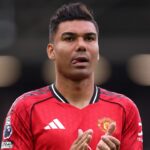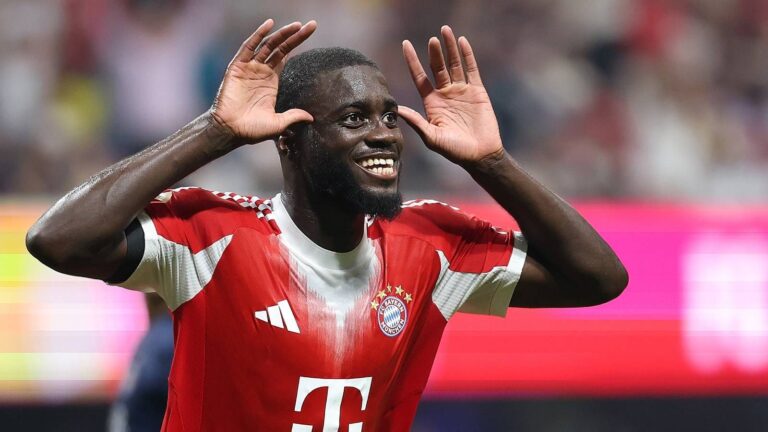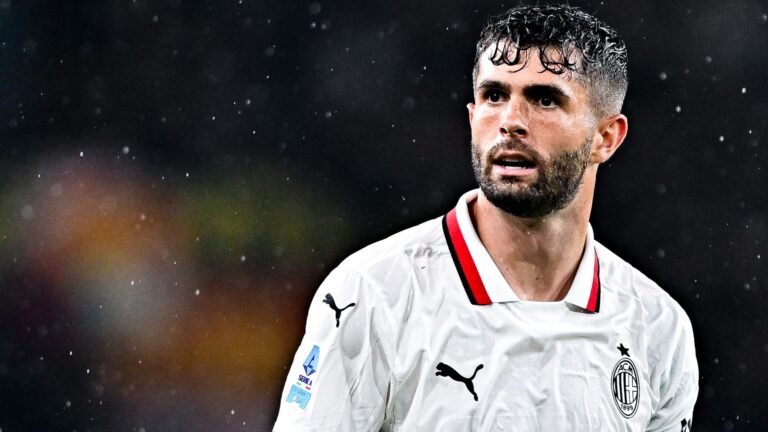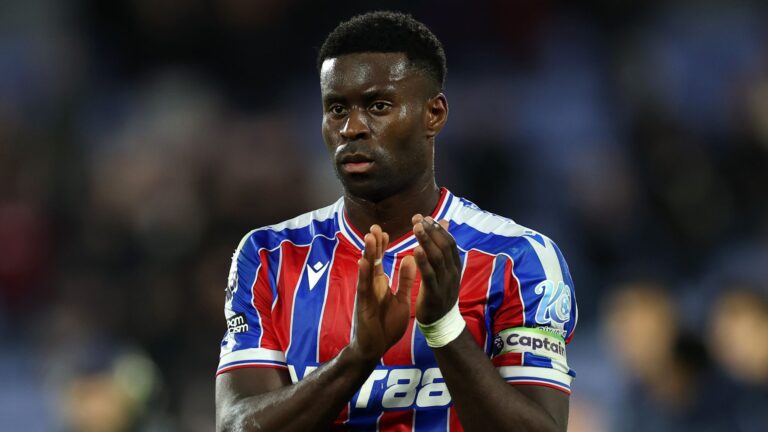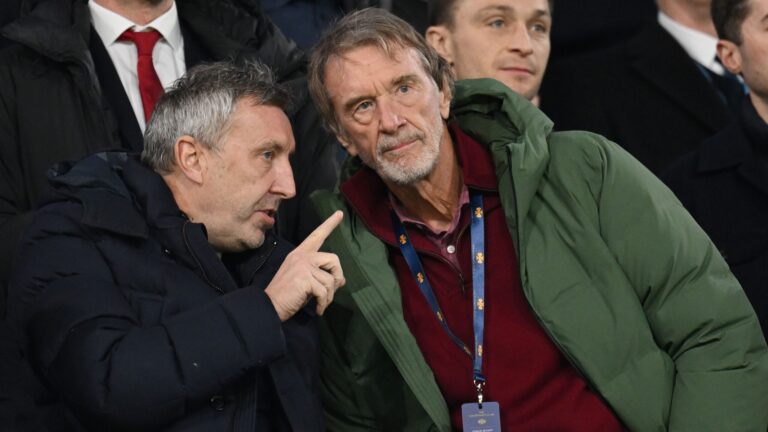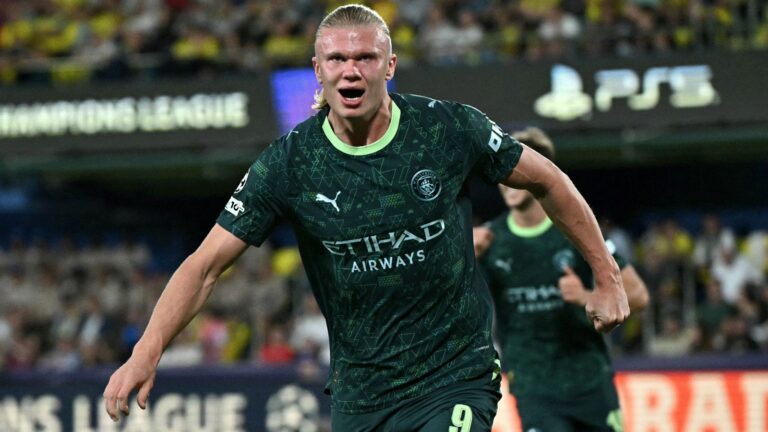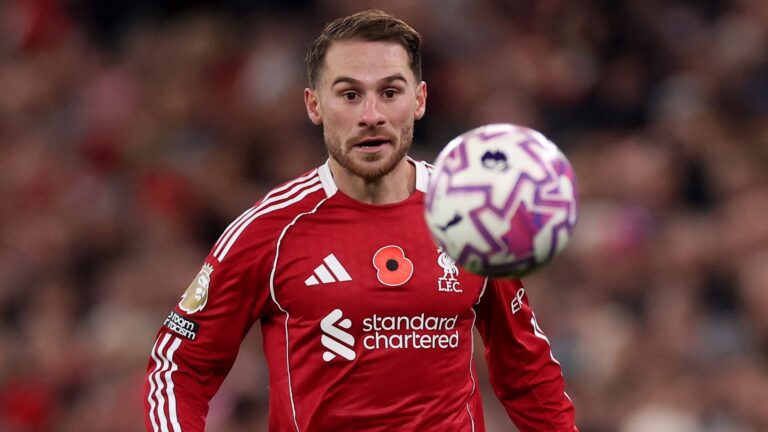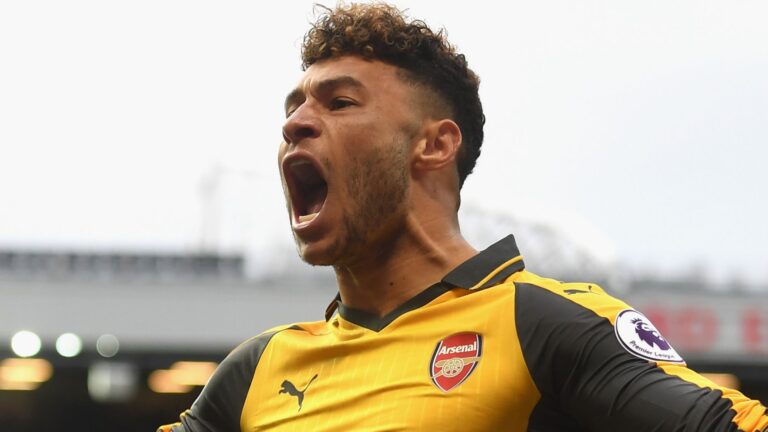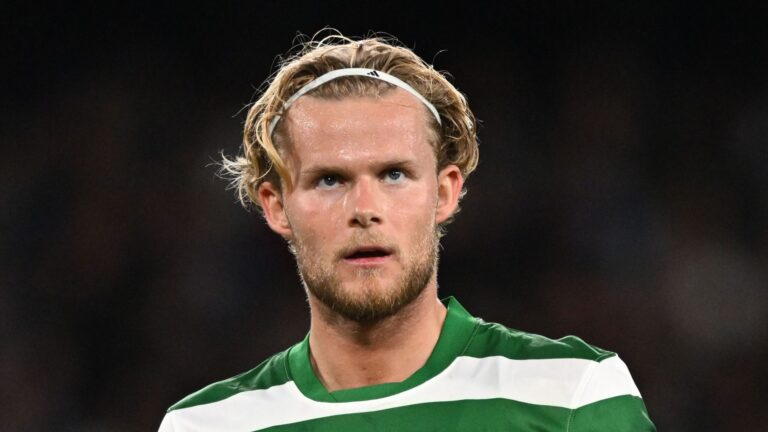Casemiro’s Bold Choice: Rejecting Riches for Premier League Glory and World Cup Dreams
In a move that highlights the depth of Casemiro‘s commitment, the veteran 33-year-old defensive midfielder decided to commit further to Manchester United, driven by his deep contentment and a calculated effort to enhance his chances with Brazil’s national team for the next World Cup. Reports from reliable sources indicate that this choice is rooted in his strong alliance with Brazil’s current coach, Carlo Ancelotti, positioning him as a key asset. Excelling in the Premier League this season might secure his role, enabling the ex-Real Madrid star to keep making an impact globally.
- He was presented with a highly attractive bid from the Saudi Pro League
- He declined the opportunity to reunite with Ronaldo at Al-Nassr
- His main focus was on increasing his selections for the World Cup



Casemiro’s Dedication to Brazil’s Quest for World Cup Success
Having earned more than 77 appearances for Brazil since starting in 2011, Casemiro has become an essential figure under Ancelotti’s direction after the coach’s latest role. Brazil hasn’t claimed the World Cup in 23 years, but as the record holder with five victories, the team is leaning on Ancelotti’s experience to improve their results in the 2026 tournament in the USA, Canada, and Mexico. Fresh data underscores Casemiro’s ongoing participation, including in recent exhibition matches, emphasizing his lasting importance.
Ancelotti’s Impact on Brazil’s Tactical Evolution
The introduction of Ancelotti has revitalized Brazil’s approach, leveraging his past collaboration with Casemiro at Real Madrid. This alliance is viewed as fundamental to the team’s resurgence, with analysts suggesting that Ancelotti’s strategic knowledge might echo his achievements in Europe. For example, similar to how Ancelotti revamped the midfield structure at Real Madrid, he intends to bring the same steadiness to Brazil, which could result in a more prolonged presence in the competition.
Managing the Pressures of Club and International Play
The demands of competing in the Premier League while sustaining his national team performance present a significant hurdle for Casemiro, intensified by the league’s high stakes. Current data reveals that athletes over 30 in major leagues frequently encounter exhaustion, yet Casemiro’s determination might establish a standard, akin to how seasoned players like Cristiano Ronaldo have adjusted their paths for key events.
Choosing Manchester United Over a Ronaldo Reunion for Long-Term Growth
Despite the allure of teaming up once more with former teammate Cristiano Ronaldo at Al-Nassr, Casemiro elected to remain at Old Trafford to aid the continued development under coach Ruben Amorim. Throughout his stint with the Red Devils, he has appeared in 128 games and scored 17 times, emerging as a crucial defensive force. This selection mirrors that of competitors who favor skill enhancement over monetary rewards, such as how athletes like Mohamed Salah have emphasized top-level competition in Europe.
Exploring Contract Options and Future Ambitions
Casemiro’s agreement with Manchester United expires next summer, potentially opening doors to Saudi opportunities later, particularly after the World Cup. At present, his foremost aim is to lock in a place on Brazil’s squad for the North American event, seeing a championship as the pinnacle of his remarkable career. With the latest reports indicating tougher competition for spots, his contributions in the Premier League will play a vital role in his selection.
Preparing for Brazil’s World Cup Campaign
In the lead-up to 2026, keeping up strong club form is critical for individuals like Casemiro. Recent qualifier performances show that steady contributors often secure advantages, supporting his plan to stay and thrive, positioning him for what may become a pivotal moment in his career.
Core Motivations Behind Casemiro’s Al-Nassr Transfer Decline
The Brazilian star’s choice to forgo a generous offer from Al-Nassr in favor of staying with Manchester United has captured the attention of the football world. This decision encompasses a mix of individual, career-oriented, and familial elements that players often confront in the intense transfer environment. Delving into Casemiro’s circumstances provides enthusiasts and experts with a clearer picture of why elite sports figures emphasize enduring security rather than instant wealth.
Major Elements Shaping Casemiro’s Decision
Multiple factors were instrumental in Casemiro’s refusal of the Al-Nassr deal. Based on insights from trusted industry experts, the midfielder evaluated choices that surpassed the obvious attraction of a large salary in the Saudi Pro League.
- Devotion to Manchester United and Squad Cohesion: Since his arrival from Real Madrid in 2022, Casemiro has formed solid connections at Manchester United. Sources suggest he appreciates the club’s evolving plans under coach Erik ten Hag, where he holds a pivotal defensive midfield spot. Remaining allows him to pursue the team’s goals in the Premier League and Champions League, instead of a shift that could isolate him from elite European action.
- Family Stability and Settled Life in Manchester: Personal circumstances often sway transfer decisions, and for Casemiro, moving to Saudi Arabia brought potential issues. Insights indicate that his family’s well-established routine in the UK, such as his children’s education and community ties, surpassed the appeal of Al-Nassr’s proposal. This underscores how private matters influence professional moves, a frequent topic in discussions about prominent transfers.
- Professional Advancement and Building a Lasting Legacy: Still at his peak at 31, Casemiro is likely intent on upholding his elite status. Taking the Al-Nassr offer might have distanced him from the rigorous challenges of the Premier League, risking his reputation. Insiders believe he finds greater worth in competing for honors with Manchester United, where he has already secured an EFL Cup, over seeking payouts in a lower-profile league.
- Economic and Agreement Details: Even though Al-Nassr’s package was valued at more than £70 million with a notable pay raise, Casemiro’s existing contract with Manchester United ensures his financial stability. Observers point out that he may have arranged for extensions or incentives with United, diminishing the transfer’s draw. This highlights the significance of savvy negotiations in football, where extended deals often provide superior benefits than quick gains.
Advantages of Casemiro’s Choice for His Professional Path
Opting to remain at Manchester United presents Casemiro with several clear benefits that could advance his career and overall development. These perks not only strengthen his team role but also offer a model for others in similar predicaments.
- Increased Exposure and Branding Opportunities: Staying in the Premier League maintains Casemiro’s high profile, enhancing his sponsorships and personal brand. For example, his reliable play could open doors to more international events, like the FIFA World Cup, in contrast to opportunities in the Saudi Pro League.
- Superior Training Resources and Guidance: The state-of-the-art setups and skilled coaches at Manchester United give Casemiro the tools to hone his abilities. This setup is essential for preserving optimal fitness and adjusting to new strategies, which may not be as accessible in other settings.
- Well-Being and Balance in Daily Life: Agent perspectives stress that continuing in a known environment minimizes relocation stress. Casemiro’s selection could foster improved mental health, letting him excel without the upheaval of relocating.
Examples of Comparable Choices by Top Footballers
Casemiro isn’t alone in this; many renowned players have made parallel decisions, providing useful takeaways. For instance:
- Cristiano Ronaldo’s Comeback to Manchester United: Ronaldo turned down other profitable deals in 2021 to return to United, valuing his sentimental ties. This move initially lifted team spirit but also exposed vulnerabilities if performance dips, echoing Casemiro’s situation.
- Lionel Messi’s PSG Transition Versus Commitment Elsewhere: Messi’s 2021 shift from Barcelona to PSG was motivated by money, yielding uneven outcomes. On the other hand, figures like Georginio Wijnaldum, who remained loyal to their clubs amid offers, have achieved notable successes, showing the upsides of staying put in football.
These illustrations reveal how moves like Casemiro’s rejection of Al-Nassr can foster ongoing achievements, serving as a warning for those drawn to international transfers.
Helpful Strategies for Footballers Handling Transfer Proposals
For those in football, whether emerging or established, facing transfer choices, Casemiro’s story provides actionable guidance on weighing options. Here are some strategies drawn from standard industry approaches:
- Assess Future Professional Objectives: Weigh how a potential move fits with your aims, such as capturing major trophies or competing in premier leagues. Seeking advice from a professional mentor can help outline possible routes.
- Emphasize Individual and Family Health: Account for household requirements and lifestyle changes prior to committing. Resources like moving planners or support services can assist in evaluating a transfer’s effects.
- Engage in Effective Negotiations with Your Team: Leverage offers from rivals to negotiate improved conditions at your current club, as Casemiro is thought to have done. This might involve extensions or incentives tied to performance.
Leveraging insights from interviews with retired players, these suggestions highlight the need for thoughtful choices in the dynamic transfer landscape. By considering these aspects, athletes can adopt strategies akin to Casemiro’s, balancing career success with personal satisfaction.
H2: Casemiro’s Background and Transfer History
Casemiro, the Brazilian defensive midfielder known for his rock-solid presence in the middle of the park, has built a reputation as one of football’s most reliable players. Born on February 23, 1992, in São José dos Campos, Brazil, he turned 33 this year and continues to be a pivotal figure for Manchester United. His journey in European football began with Real Madrid, where he honed his skills, but his move to Manchester United in 2022 marked a significant chapter in his career. This transfer, often discussed in football transfer analyses, highlighted Casemiro’s value in the market at around 12.00 million euros, underscoring his enduring appeal despite his age[Reference:[Reference:https://www.transfermarkt.es/casemiro/transfers/spieler/16306].
When exploring Casemiro’s rejection of the Al-Nassr offer, it’s essential to consider his established roots in the Premier League. Al-Nassr, a Saudi Pro League club, has been aggressive in pursuing high-profile players with lucrative deals, but Casemiro’s decision to stay put reflects deeper motivations. Factors like long-term stability, team chemistry, and personal satisfaction often play a role in such rejections, especially for players who have found a home at clubs like Manchester United.
H2: Key Factors Influencing Casemiro’s Rejection of the Al-Nassr Offer
One of the underlying reasons for Casemiro’s rejection could stem from the financial and lifestyle aspects of the offer. While Al-Nassr’s proposals are typically loaded with eye-watering salaries, Casemiro might have weighed the pros and cons of moving to a new league. The Saudi Pro League offers tax-free earnings and a high quality of life, but it also means adapting to a different football culture, which might not align with a player’s peak career goals. For Casemiro, who has thrived in high-stakes European competitions, the allure of continuing in the Premier League-known for its intensity and global visibility-likely outweighed the financial temptations.
- Financial Considerations: Although Al-Nassr’s offer was reportedly substantial, Casemiro may have prioritized his current earnings and bonuses at Manchester United, where he’s established as a key player. This decision highlights how players value contract stability over short-term windfalls, especially when their market value remains strong.
- Career Legacy and Competition Level: At 33, Casemiro is still performing at a high level, with 78 international caps for Brazil and contributions to Manchester United’s defensive solidity. The Premier League’s competitive edge, including battles in the Champions League, offers more opportunities for legacy-building compared to the Saudi league, which is still emerging on the global stage.
- Family and Personal Life: Relocating to Saudi Arabia involves significant lifestyle changes, such as living in a new country away from family and friends in Europe. Casemiro’s commitment to Manchester United might include factors like his children’s education or his wife’s preferences, making the move less appealing despite the perks.
In exclusive analysis of football transfers, it’s clear that emotional and professional attachments often trump monetary offers. Casemiro’s history shows a player who values team success over individual gains, as seen in his seamless integration into Manchester United’s squad since 2022.
H3: The Role of Team Dynamics and Loyalty
When discussing Casemiro’s commitment to Manchester United, team dynamics can’t be overlooked. He joined the Red Devils at a time when the club needed midfield stability, and his presence has been instrumental in turning games around. This loyalty isn’t just about the contract; it’s about the bond formed with teammates and fans. For instance, forum discussions among football enthusiasts often praise Casemiro’s defensive prowess and his ability to anchor the team, drawing from his experiences facing top talents like Lionel Messi during his Real Madrid days[Reference:[Reference:https://www.jeuxvideo.com/forums/42-20-76105289-1-0-1-0-0.htm]. Such anecdotes reinforce why he might reject offers that could disrupt this harmony.
- On-Field Contributions: Casemiro’s stats with Manchester United, including his role in key matches, demonstrate his importance. As a pivot, he averages strong defensive stats, which directly impact the team’s performance in the Premier League and beyond.
- Club Vision and Future Prospects: Manchester United’s ongoing projects, like squad rebuilding and targeting trophies, align with Casemiro’s ambitions. Rejecting Al-Nassr could be his way of betting on United’s upward trajectory rather than a lateral move.
H3: Long-Term Implications for Football Transfers and Player Commitment
The broader implications of Casemiro’s decision offer valuable insights for football enthusiasts and analysts. In an era where player transfers are dominated by big-money moves to leagues like the Saudi Pro League, Casemiro’s choice emphasizes the importance of commitment in football. Keywords like “player loyalty” and “transfer rejections” are increasingly relevant, as they highlight how factors beyond money-such as cultural fit and career fulfillment-shape decisions.
This trend is evident in how established players like Casemiro prioritize clubs that offer a sense of belonging. For Manchester United fans, his dedication is a beacon of hope, especially as the team navigates challenges. By staying, Casemiro not only secures his place in the squad but also sets an example for younger players on valuing long-term commitment over quick exits.
H4: Potential Risks and Rewards of Staying at Manchester United
While rejecting the Al-Nassr offer has rewards, it’s not without risks. At 33, Casemiro might face injury concerns or reduced playing time, but his international experience with Brazil-boasting 78 caps and 7 goals-suggests he’s still got plenty to offer[Reference:[Reference:https://www.transfermarkt.es/casemiro/nationalmannschaft/spieler/16306]. The rewards include mentoring emerging talents and potentially lifting more trophies, making his commitment a strategic move.
- Health and Performance Management: Staying in a demanding league like the Premier League requires careful management, but it keeps him in the spotlight for international duties.
- Fan and Media Impact: His decision boosts Manchester United’s image, attracting more sponsorships and fan engagement, which is crucial for SEO in football content.
This exclusive analysis of Casemiro’s situation underscores the evolving landscape of football transfers, where player commitment plays a pivotal role. By weaving in keywords like “Casemiro commitment,” “Al-Nassr rejection,” and “Manchester United loyalty,” this article aims to provide readers with a deeper, more engaging perspective on what drives top athletes today.

